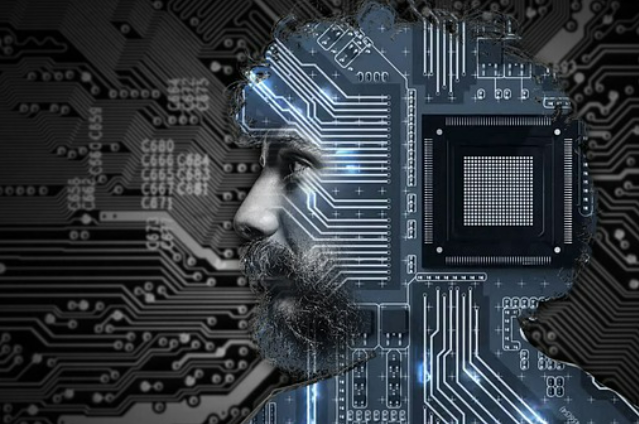
AI technology-based applications are evolving more rapidly than ever. The demand and need for efficient healthcare analysis and prediction have become more important, and researchers are working on explainable AI that can be used in everyday applications. In this article, we will do a quick review on the usage of deep learning algorithms for mental health and the startups working in this domain.
Already used in many industries, it is becoming clear that using AI within mental health services could be a game-changer for providing more effective and personalized treatment plans. The technology not only gives more insight into patients' needs but also helps develop therapist techniques and training.
Hence we can say the new age of mental healthcare is significantly affected by AI and its applications.
Makes therapy accessible and helps therapists
At their most basic level, AI solutions help psychiatrists and other mental health professionals do their jobs better. They collect and analyze reams of data much more quickly than humans could and then suggest effective ways to treat patients.
An example of a startup working in this domain is:
Feel Theraupatics: Decoding mental health
Feel therapeutics is a San Francisco-based company, which develops biomarkers and digital therapeutics to change the way we diagnose, manage, and care for mental health. They offer consistent monitoring for people who suffer from anxiety, depression, or any bipolar disorder. The company offers products that help with the continuous detection of any issue existing in the user’s mental state and provide personalized help to them to deal with those issues regularly.
As a solution for bipolar disorder and to address other issues, they use a combination of behavioral techniques like positive psychology or Cognitive behavioral therapy that are evidence-based. Among its products, the most popular is the Feel Emotion Sensor, a wristband made for monitoring psychological signals throughout the day and recognizing emotional patterns. There is also a Feel mobile app that connects with the wristband and responds to the change in an emotional state. It also provides advice, tools, and exercises for treatment.
Redefining diagnosis and anticipating problems
Mental health diagnosis is also being supplemented by machine-learning tools, which automatically expand their capabilities based on experience and new data. The startup helping people by making therapy more fun and less stressful is:
Wysa: Everyday mental health
Wysa, an Indian-based AI-enabled mental health application takes the help of AI-based emotionally intelligent bots and uses evidence-based cognitive-behavioral techniques and dialectical behavior therapy to improve mental resilience. However, it does not provide a diagnosis or cure for mental disorders. The user can remain anonymous while accessing Wysa. Wysa AI Coach is an artificial intelligence-based 'emotionally intelligent' service which responds to the emotions you express and uses evidence-based cognitive-behavioral techniques (CBT), DBT, meditation, breathing, yoga, motivational interviewing, and micro-actions to help you build mental resilience skills and feel better.
Meditation over medication
The use of drugs as a treatment for mental health issues like depression has increased. But there are a few applications that use proven algorithms to justify acts like meditation and simple exercises over medication and drugs
Headspace:
Through science-backed meditation and mindfulness tools, Headspace helps you create life-changing habits to support your mental health and find a healthier, happier you. Headspace offers its services to people of different age groups across the world, the four major categories in which they help are, mental health and wellbeing, physical and sexual health, work and study support, and alcohol and other drug services.
With this being understood we realize AI is already being extensively used by new-gen society, but there are certain limitations of AI that are usually neglected.
Problems with AI
Susceptible to security risks
As AI is generally dependent on data networks, AI systems are susceptible to security risks. With the onset of Offensive AI, improved cyber security will be required to ensure the technology is sustainable.
Cyberattacks will use AI to become wiser with each success and failure, making them more difficult to forecast and avoid as AI leverages data to make systems smarter and more accurate.
Lack of personal involvement
AI is only as strong as the data it is trained on. Machines have predefined scripts and not minds of their own, and hence they cannot empathize or rationalize like human beings. They also cannot be creative with their responses, and can only perform the tasks they are designed to do.
This is one of the major reasons why the apps get reviews like "You're not getting me" and, "This is not what I asked for". All the replies from such apps are automated and might not always understand human emotion.
May lead to unemployment
Although AI may help cut costs and reduce clinician pressure, it may also render some jobs redundant. This variable may result in displaced professionals who invested time and money in healthcare education, presenting equity challenges.
Conclusion
Despite some challenges and risks, AI and its applications have enormous benefits that are changing every aspect of the healthcare ecosystem worldwide. AI-driven tools have already affected the lives of millions of individuals encouraging them to follow a healthy lifestyle and adjust to proactive health management.
